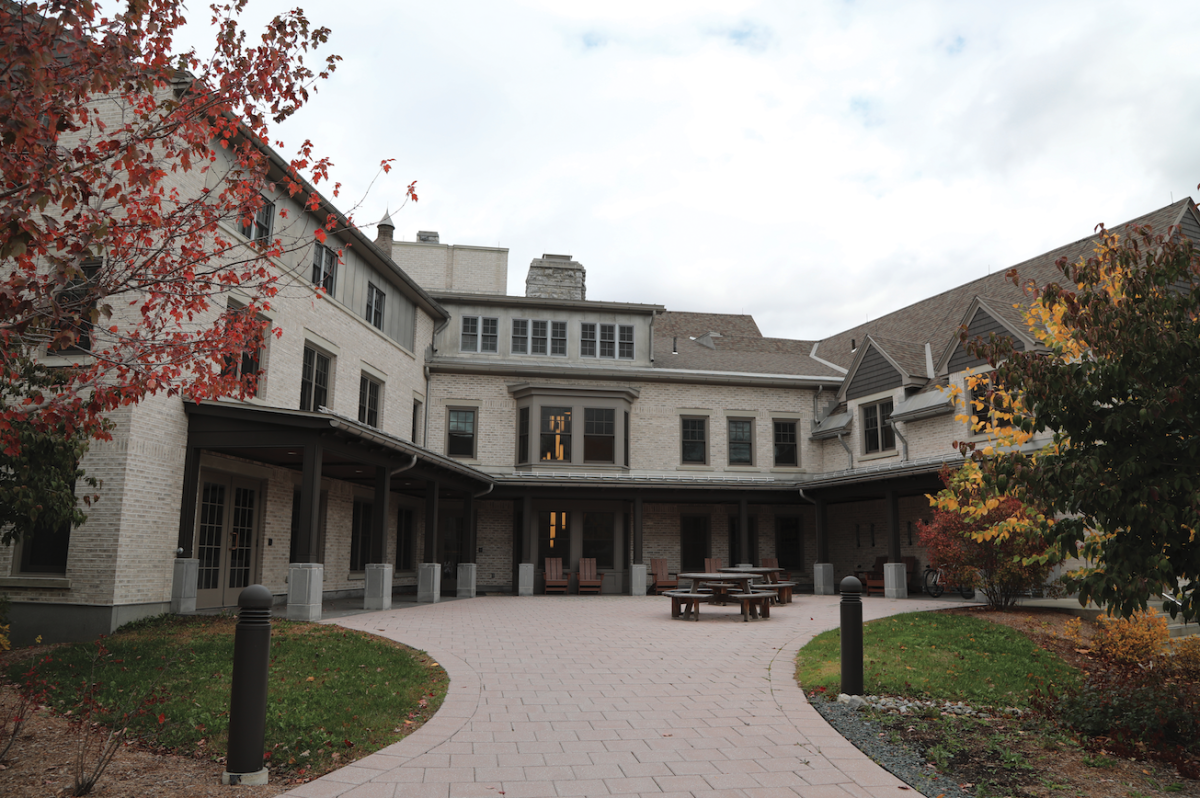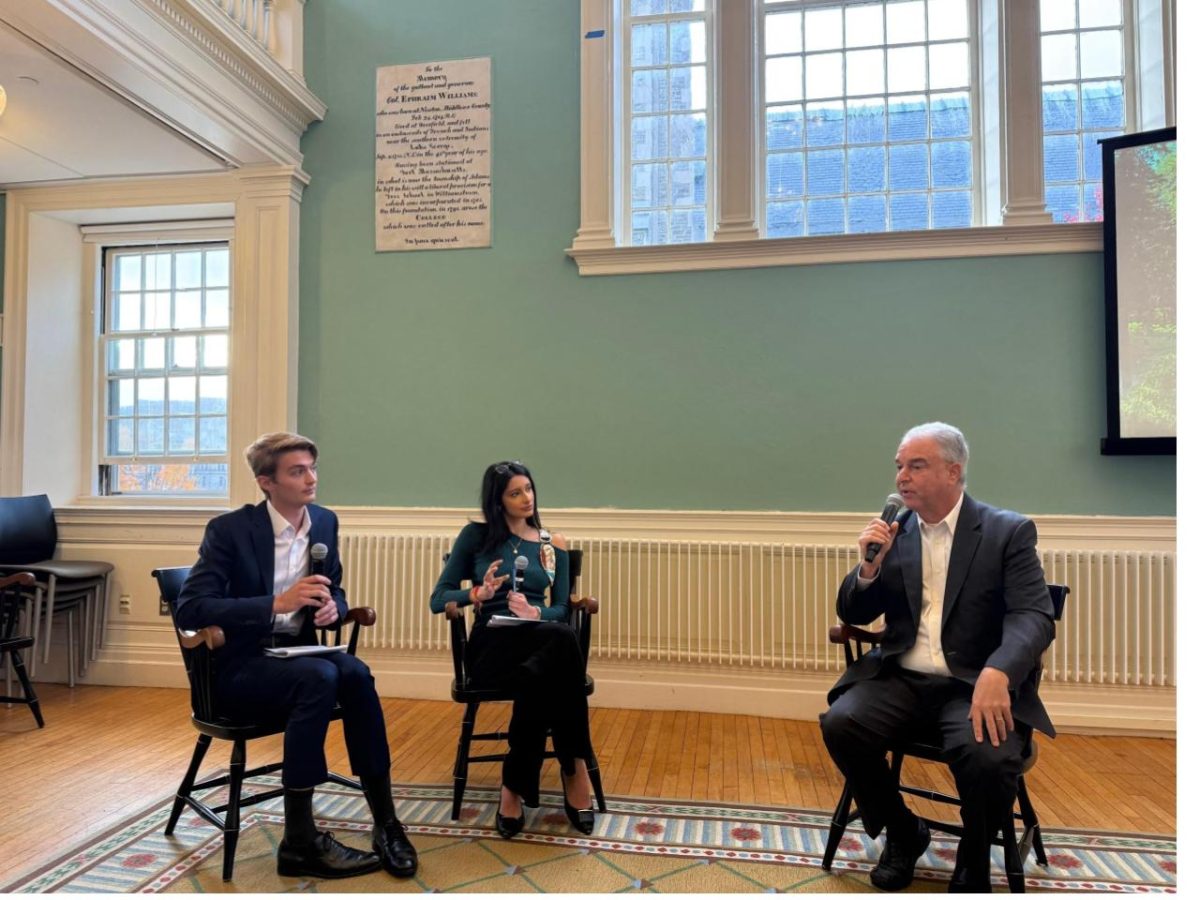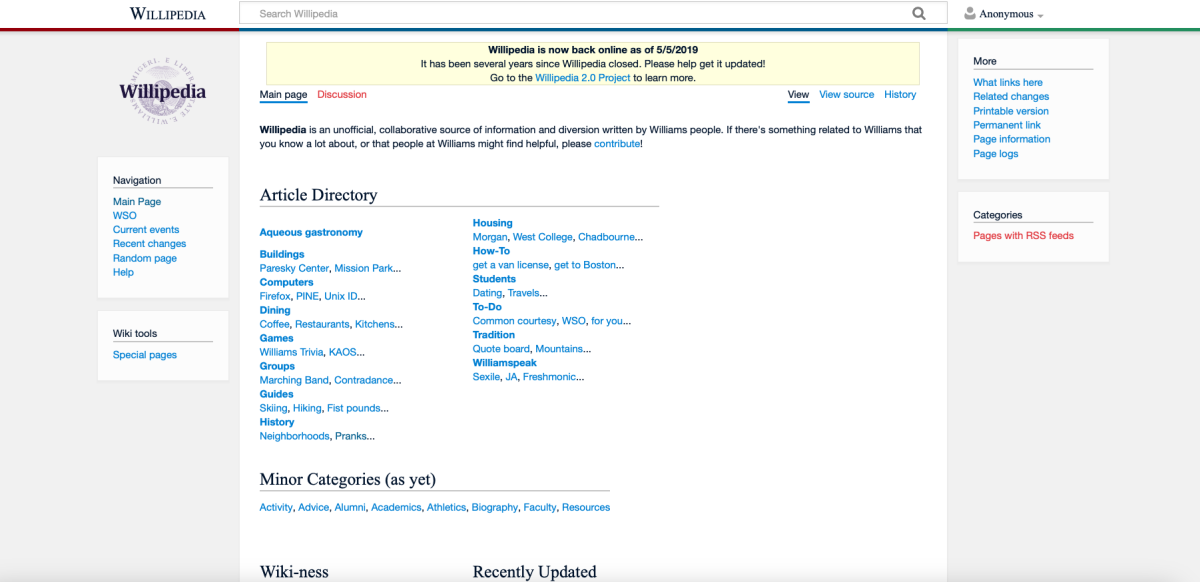
The College plans to keep its hiring practices unchanged despite a sharp increase to the employer fee to sponsor a H-1B visa. The College must pay a $100,000 fee to sponsor future H-1B visas after the White House announced a change to its visa policy on Sept. 19. Previously, employers had to pay between $2,000 and $5,000 depending on the size of the company, according to the American Immigration Council. The fee will only apply to new visa applications and will be paid by the employer, according to U.S. Citizenship and Immigration Services (USCIS). The policy went into effect on Sept. 21.
Dean of the Faculty Lara Shore-Sheppard told the Record that the College remains committed to supporting international faculty. “Based on what we know now, the College doesn’t expect to back away from its current level of support for tenure-track faculty who require employment visas,” she wrote in an email to the Record.
The College’s hiring processes will also remain the same, according to Shore-Sheppard. “Unit chairs have been told to continue with current tenure-track hiring processes as they usually would,” she wrote. “As in past years, successful tenure-track candidates who require a visa for U.S. employment will receive assistance with the sponsorship process through the Dean of the Faculty Office.”
Between 2020 and 2025, the College sponsored 46 H-1B visas, according to the USCIS H-1B Employer Data Hub.
H-1B visas allow temporary residence for workers in “specialty occupations” in fields such as technology, engineering, and academia. These visas are frequently sought by international professors pursuing tenure-track positions at the College. Though usually granted for a period of three years with a possible extension up to six, H-1B visas are classified as “dual-intent,” allowing visa holders to simultaneously pursue permanent residency in the United States while working temporarily.
In a Sept. 19 Presidential Proclamation titled “Restriction on Entry of Certain Nonimmigrant Workers,” President Donald Trump said the goal of the policy is to combat the “systemic abuse” of H-1B visas that “has undermined both our economic and national security,” claiming that the fee will help protect domestic workers against unfair competition. On Oct. 3, a group of schools, labor unions, and religious groups filed a lawsuit against the Trump administration disputing the constitutionality of the order.
Changes to H-1B visas raise uncertainty not just for international faculty at the College but for international students as well. Ambiguity surrounding work sponsorship has affected seniors, in particular, who are thinking about their post-graduation plans.
For Saumya Shinde ’26, co-chair of the International Students Association (ISA), visa-related uncertainty has pushed her to consider employment opportunities outside the United States.
“One way that I’m seeing it manifest is some students, like me, are just not looking at jobs at this point in the U.S,” she told the Record. “Being a senior, I just don’t have the mental bandwidth to do my research, as sad as that sounds. Because every day there’s so much new [visa] information coming around, is it even worth it? Maybe I might just apply somewhere else.”
International Student Services (ISS) plans to host immigration attorney Mary Walsh on Nov. 13 for a virtual presentation on the evolving immigration landscape and advice for international students seeking to work in the United States after graduation, according to Director of ISS and Associate Dean of Students Ninah Pretto.
In addition to the virtual presentation this fall, Walsh will be on campus in the spring to meet individually with students. International students may also seek advice from advisors at the ’68 Center for Career Exploration and Senior Class Dean Ray Grant, all of whom have an ongoing partnership with ISS.
The change to the visa policy adds to the uncertainty facing international students on college campuses. A travel ban instituted this summer barred students from 19 countries from returning to the United States for their studies. Last spring, the Trump administration threatened to revoke student visas for involvement in on-campus protests.
Pretto affirmed ISS’ commitment to helping international students despite the continuously evolving immigration landscape. “ISS wants to do their best in anticipating challenges, minimize disruptions, and ensure all students navigating the U.S. immigration system have clear pathways to continue their education despite the evolving immigration landscape,” she wrote in an email to the Record. “If a major policy shift occurs, ISS will quickly assess the impact and communicate options and next steps to students to allow them to make informed decisions about what is best for them.”
Shinde praised ISS for the support it is providing international students. “ISS is the one space that people are really going to right now that has the most reliable information,” she said. She noted that in addition to serving as a resource for information and offering advice, ISS also provides emotional support for students and organizes community events. Staff from the office even joined ISA student members for an apple-picking event last week, Shinde said.
However, Shinde said she worries that ISS may be over-burdended. The small office is responsible for supporting the College’s more than 200 international students. “How are you really supporting so many students on campus amidst this big fright happening?” she said. “You just have two people. How are you doing that? I feel they might be swamped with work.”
Shinde said that amid all this stress, ISA plans to prioritize celebration and joy.
“Just our existence is political,” she said. “[ISA] is focusing more on culture and celebration of our culture, and more joyful activism. We’re going to have more dance floors and formals and cultural exchange spaces.”














